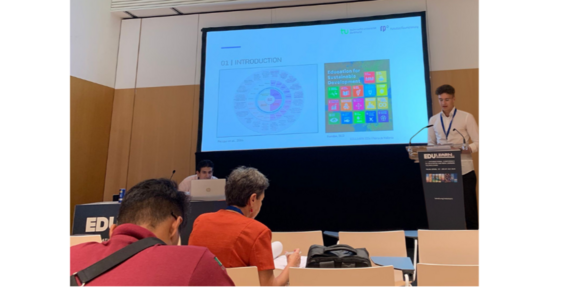Presentation at the 16th EDULEARN Conference – Palma, Spain

The accelerating climate crisis underscores the necessity for sustainable education and learning as a core competence. At the EDULEARN24 Conference in Palma, Spain, held from July 1-3, master's candidate Christoph Marci-Boehncke and his thesis supervisor, our team member Víctor Cobs-Muñoz, presented a joint paper titled 'Cross-Disciplinary Perspectives: Integrating the DPSIR Framework for Sustainability Education in Spatial Planning,' addressing this critical issue. Their research introduces an adaptation of the DPSIR (Driver, Pressure, State, Impact, Response) framework to enhance sustainable teaching and learning within the spatial planning context. This modified framework incorporates analysis criteria, guiding questions, and derivations, making it more accessible and practical for educational purposes. It aims to equip students with the tools to analyze and solve environmental problems effectively. By integrating the DPSIR framework into the curriculum, the authors provide a structured approach for students to understand and address the complex relationships between human activities and environmental impacts. This innovation supports the development of critical thinking and problem-solving skills essential for future spatial planners.
The EDULEARN24 Conference facilitated valuable discussions and feedback on this work, emphasizing the importance of innovative educational strategies in fostering sustainability.
Marci-Boehncke, C., Cobs-Muñoz, V. (2024): Cross-Disciplinary Perspectives: Integrating the DPSIR Framework for Sustainability Education in Spatial Planning. Proceedings of the 16th International Conference on Education and New Learning Technologies (EDULEARN24), Palma, Spain. pp. 4234-4242. DOI: 10.21125/edulearn.2024.1063

